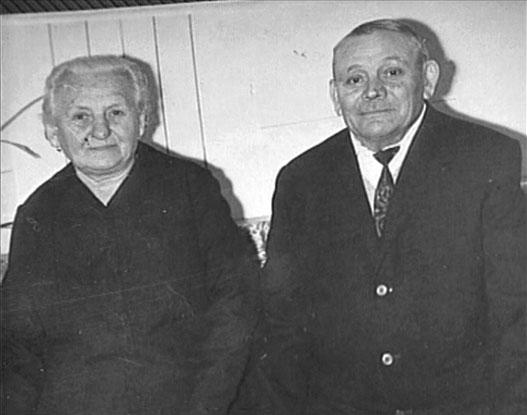

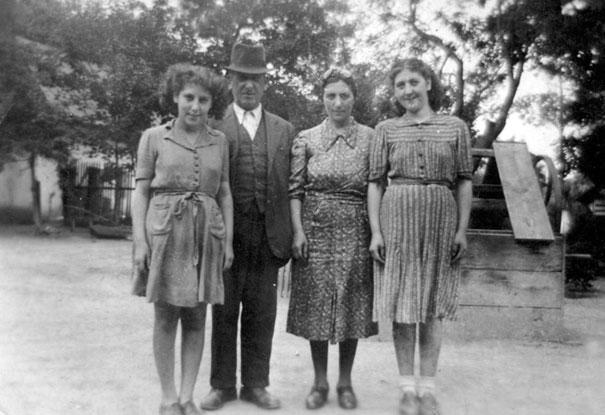

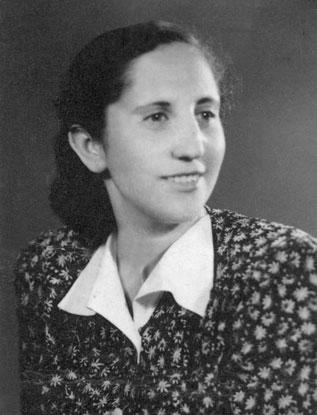

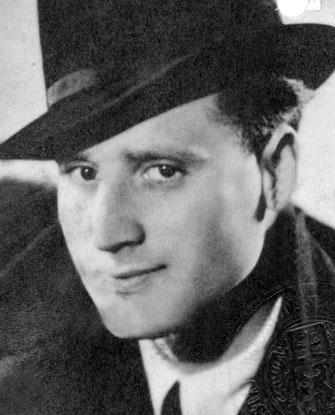

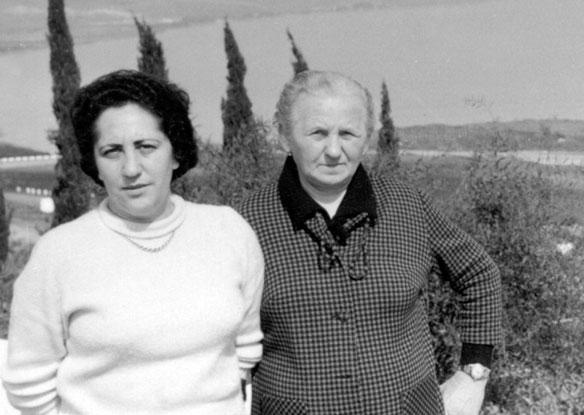

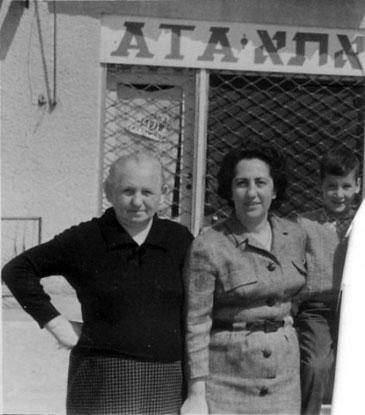

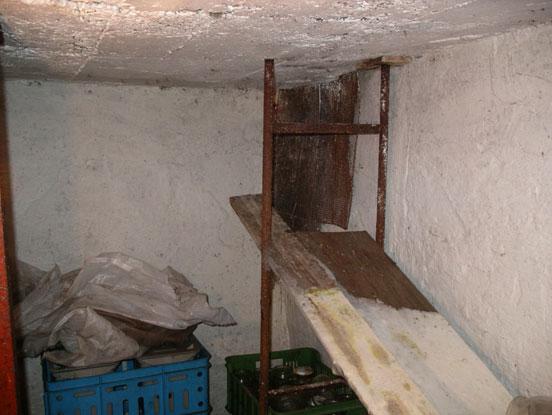

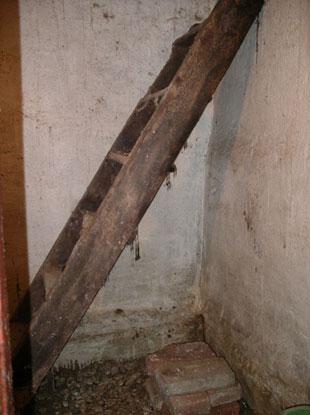

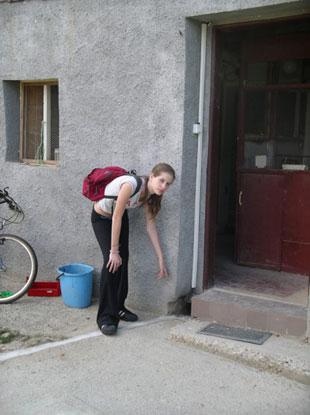

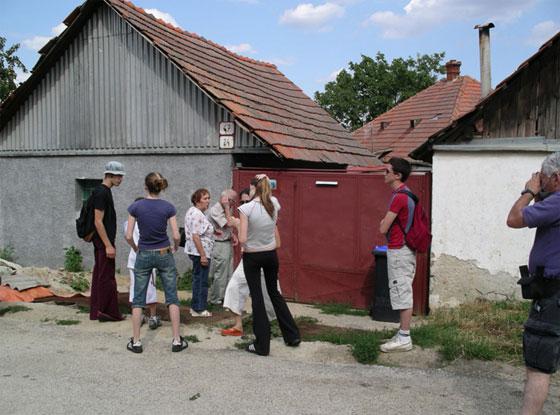

Sunday to Thursday: 09:00-17:00
Fridays and Holiday eves: 09:00-14:00
Yad Vashem is closed on Saturdays and all Jewish Holidays.
Entrance to the Holocaust History Museum is not permitted for children under the age of 10. Babies in strollers or carriers will not be permitted to enter.




















Before the war the Lamm family owned a large estate in the vicinity of Nitra in Slovakia, which employed about sixty Slovak workers. When the war broke out the situation changed overnight and a reversal of fortunes took place. The estate was confiscated from the Jewish family, and they lost all their rights. The Lamms were now pauperized and at the mercy of the Slovak regime and Nazi Germany. But Frantiszek Melo, one of the estate’s workers, did not abandon his former employer. He sympathized with the family that was left penniless and offered them to stay in his home. Later, when the Jews were in danger of deportation and death, the Melos went on to assume full responsibility for their survival.
In the beginning of September 1944, following the Slovak uprising, the Germans moved into the Nitra area. When the manhunt for Jews and partisans began in full force, the Melos prepared a hideout for their wards under the stable. When the danger increased – the Germans were rounding up Jews in the area and the neighbors began to get curious – the Lamms decided to leave the house and hide in the forest. A forester let them stay in his hut, and the Melos would visit them and bring them food. They saw the suffering of the Jewish family who only two years earlier had led a comfortable life, and implored them to return to their home. To their surprise, when the Lamms returned to their benefactors’ home, they found another two women hiding with the Melos. Frantiszek had found Mrs. Korsbach and her daughter wandering in the forest – frozen and in a state of total exhaustion. As if it were the most normal thing he took them in too. His family now had nine Jews in hiding.
The danger to both Jews and their benefactors was enormous. As the Red Army approached, the Germans became more ruthless and violent. Frantizsek was well known for his sympathy of the Communists and for his resistance to the German occupiers, and therefore was a natural target. It was therefore no wonder that the Germans and their Slovak collaborators arrived at the Melos home and conducted a search. Miraculously they didn't find the hiding Jews, but they ordered the Melo's son to present himself the following day at their headquarters.
The same evening a dramatic discussion took place in the Melo's modest home. It was clear to everybody that if the son failed to present himself, the Germans would return to search for him. There was a great risk that in a second search the Germans would find the hiding Jews. After painful deliberation the Melos decided that they wouldn’t ask the Jews to leave, but that their son would have to follow the German order, even though it was likely to cost him his life. The following morning the Young Frantiszek went into town and presented himself to the police. Despite a brutal interrogation he did not betray the Jewish family or his family's ties to the partisans. He was very lucky and survived the arrest
The Lamm family stayed with Frantiszek and Angela Melo until liberation.
After the war the Lamm family immigrated to Israel. In 1964 they invited Anglea Melo to visit them in their new country.
In 1979 Frantiszek and Angela Melo and their son Frantiszek were recognized as Righteous Among the Nations.
In August 2004, sixty years after the Lamm family was rescued by Angela and Frantiszek Melo, Edith Lamm-Veseli and her family – her two sons, daughter-in-law and six grandchildren – traveled to Slovakia. It was the first time Edith had returned to the village where she grew up and where she had spent the years of the Holocaust. She found her family home as well as the house of the Melo family and the hideout where her family was sheltered. Everything seemed unchanged. Angela and Frantiszek had died, but their grandson was still living in the village and welcomed the woman his grandparents had saved. Edith Lamm died in January 2007. She was the last witness of the courageous rescue in the small Slovak village.

Thank you for registering to receive information from Yad Vashem.
You will receive periodic updates regarding recent events, publications and new initiatives.

"The work of Yad Vashem is critical and necessary to remind the world of the consequences of hate"
Paul Daly
#GivingTuesday
Donate to Educate Against Hate


Worldwide antisemitism is on the rise.
At Yad Vashem, we strive to make the world a better place by combating antisemitism through teacher training, international lectures and workshops and online courses.
We need you to partner with us in this vital mission to #EducateAgainstHate
The good news:
The Yad Vashem website had recently undergone a major upgrade!
The less good news:
The page you are looking for has apparently been moved.
We are therefore redirecting you to what we hope will be a useful landing page.
For any questions/clarifications/problems, please contact: webmaster@yadvashem.org.il
Press the X button to continue



